Kenya: Regenerative Agriculture for Business in the Veggies for Planet and People Project
One of Africa’s greatest challenges to address malnutrition is increasing the supply of vegetables. This “vegetable gap” in Africa is provides however an opportunity to enhance nutrition and to create jobs and income at the same time.
To that purpose, the IKEA Foundation and the World Vegetable Center (WorldVeg) agreed in 2019 to develop a 5 year initiative called “Veggies4Planet&People” (V4P&P), implemented by WordVeg and SNV Netherlands Development Organisation . At the same time, the objective was to improve environmental and human health through safe production of vegetables, cutting out chemical pesticides as much as possible, and replacing them with safe biopesticides.
Kenya’s population
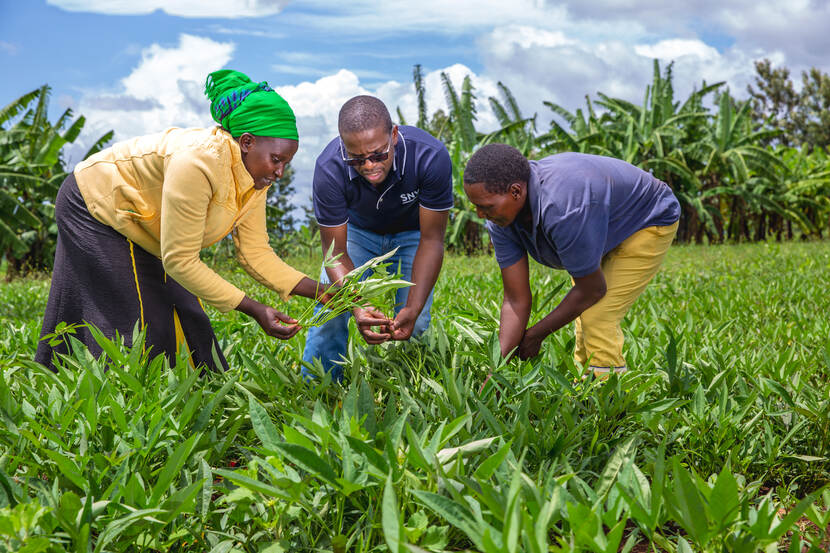
The economy of Kenya has been growing with more than 5% per year on average before COVID-19 hit the African continent. Despite this impressive growth and gradual reduction of poverty levels, the population living below the national poverty line was still 36.1 percent in Kenya in 2015 (World Bank, 2019).
Proportionally, more women than men live below the poverty line. About 80% of the population of Kenya lives in rural areas and depends on agriculture for its livelihood.
The “Vegetable Gap”
Vegetables have a clear role to play to address Africa’s challenges of malnutrition and youth unemployment. Current levels of vegetable consumption in sub-Saharan Africa are the lowest of all regions in the world. It is estimated that the average African adult consumes 20 kg of vegetables per year (FAO, 2007) against a recommended minimum amount of 76 kg. Vegetables have high contents of vitamins and minerals needed to address many types of micronutrient deficiencies while per hectare profits from vegetable production are many times those from staple food production.
Increasing the supply of vegetables has been identified as one of Africa’s greatest challenges to address malnutrition (Nelson et al., 2018). Demand for vegetables is also rising, as middle-income consumers can afford vegetables and have increasingly become aware of their health benefits, especially during the COVID-19 pandemic. But many are also concerned about the safety of vegetables because of contamination with pesticide residues and human pathogens.
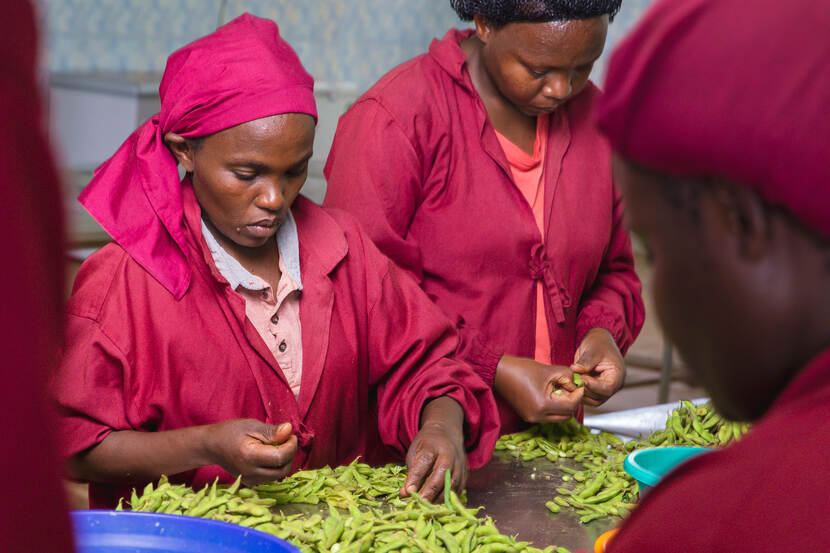
The “vegetable gap” in Africa is therefore an opportunity to enhance nutrition and to create jobs and income at the same time. Vegetable production, processing and marketing offer potential opportunities that can be especially attractive to youth: production requires only small amounts of land, it is technology-savvy, and high profits can be obtained in a relatively short period of time (Schreinemachers et al. 2018).
Veggies4Planet&People (V4P&P)
In 2019, the IKEA Foundation and the World Vegetable Center (WorldVeg) greed to develop a 5 year initiative with a budget of € 6 m called “Veggies4Planet&People” (V4P&P), implemented by WordVeg and SNV Netherlands Development Organisation, with the aim to create jobs and income, particularly for youth and women, in the vegetable sector in Ethiopia and Kenya. At the same time, the objective was to improve environmental and human health through safe production of vegetables, cutting out chemical pesticides as much as possible, and replacing them with safe biopesticides.
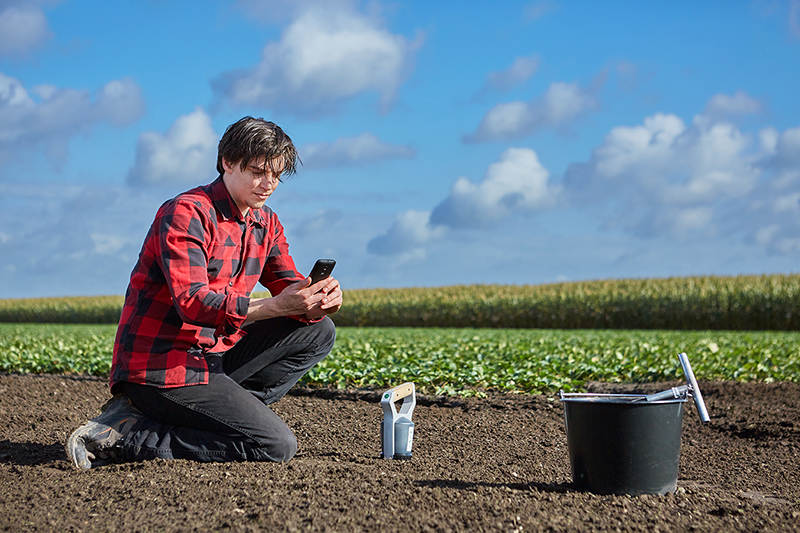
At farm level, V4P&P promotes regenerative agricultural technologies; these are technologies that increase biodiversity, enrich soils, improve watersheds, enhance natural resources and farm communities. In practice, this includes the use of integrated pest management that promote natural enemies of pests and diseases.
Natural Pest management
Natural enemies are also commercially available on the market in Kenya and produced by Koppert, Real IPM and DuduTech. These companies also sell beneficial fungi such as Trichoderma harzianum and Bacillus subtilis that enhance the microflora of the soils and reduce soil borne diseases in vegetables such as bacterial wilt. In an attempt to cut down or eliminate chemical fertilizer use on vegetables, the use of compost making and recycling of farm waste is being scaled up, as well as the use of slurry from biogas plants. This slurry is the by-product of anaerobic fermentation of manure from the farm whereby the prime product is gas for cooking and lighting.
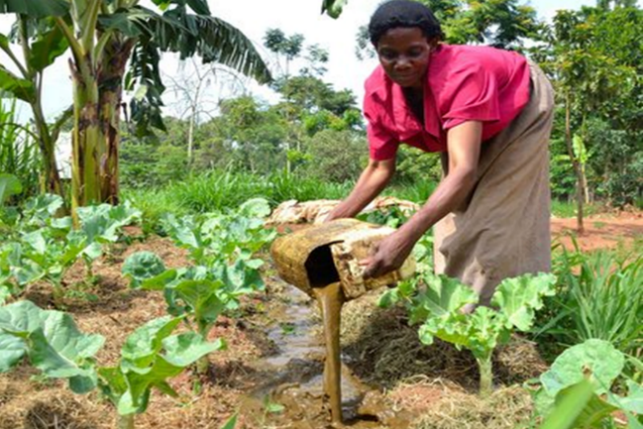
In both Kenya and Ethiopia, SNV has been implementing projects to promote biogas, creating a readily available source of bioslurry for vegetables. Mrs. Hurume Edecha, a lead farmers in the V4P&P project in Wolmera District in Ethiopia, has been comparing vermicompost made by worms, with slurry from biogas on her spinach and kale plots and says: ‘I didn’t get good results from vermi-compost on this plot, but on the section where I applied bioslurry the vegetables grew very well’.
Water management
Regenerative agriculture also considers the use of irrigation water, which is becoming an increasingly scare source in the regions, but at the same time essential for year-round commercial vegetable production. Mrs. Purity Waceke, Treasurer of the Kagongo Self Help Group in Kiambu District in Kenya says:
‘Every farmer who is serious about vegetable production in this area uses a water pump and drip irrigation; without that you cannot succeed. Sometimes our pumps get stolen from the well and you just have to buy another one. If you look at mine, you see that I have covered the well with a concrete slab so that stealing becomes more difficult.’

However, in other groups that V4P&P works with, the capital to invest in pumps and drip irrigation is often beyond the reach of many smallholder farmers. And solar powered pumps, that would save costs of diesel or electricity and are much more environmentally friendly, are about twice the price of diesel pumps in Kenya.
The project is planning to team up with other initiatives to make solar energy more accessible and affordable, bring in micro-credit providers, and assess the economic benefits over time.
Focus on traditional African vegetables (TAV)

V4P&P focuses on traditional African vegetables (TAV), because their demand is increasing in big cities such as Nairobi, Kisumu and Addis Ababa, but also because they are extremely nutritious in terms of vitamin and mineral contents, often more than ten times higher than in regular vegetables.
Another advantage is that TAVs are more tolerant to pests and diseases than other vegetables, reducing the need to apply pesticides that are damaging to the environment and human health.
Vegetable Business Network (VBN) approach
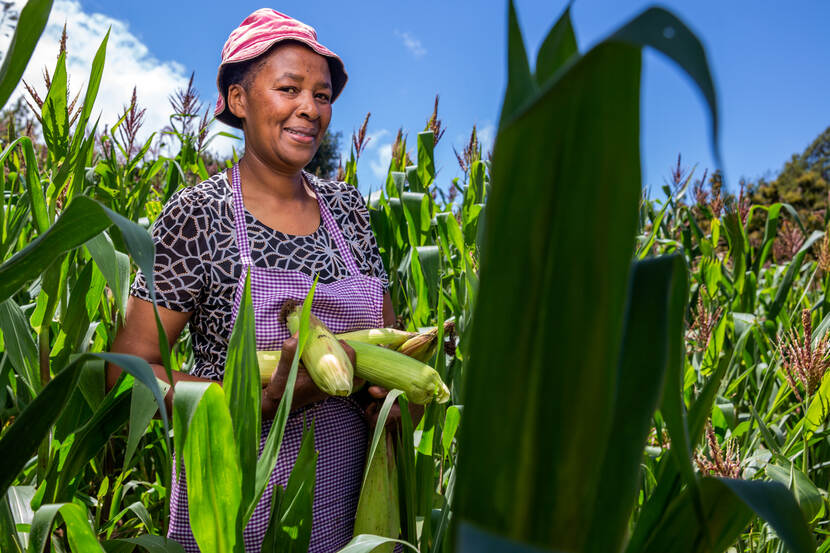
Accessing both input as well as outputs markets can be problematic to many women and youth farmers and this is why the project implements a Vegetable Business Network (VBN) approach. VBNs are groups of actors in the vegetable value chain within a certain geographical area that share a common goal: producing and marketing TAVs in a way that benefits planet and people.
The VBNs have members beyond producers and include input suppliers, traders, processors and retailers. Good quality seed is the foundation of a good product, and that’s why V4P&P works with both existing and new seed companies. The project is exploring the creation of more wide spread seed distributing channels of improved kale seeds of East-West Seed through VBNs, while good quality seeds of TAVs are also available from East African Seed Company in Kenya.
Author: Ralph Roothaert, Country Director, World Vegetable Center (Kenya)

References
FAO, (2007). FAOSTAT Database, http://faostat.fao.org/default.aspx, accessed November 2007.
Nelson, G., Bogard, J., Lividini, K., Arsenault, J., Riley, M., Sulser, T.B., Mason-D’Croz, D., Power, B., Gustafson, D., Herrero, M., Wiebe, K., Cooper, K., Remans, R., Rosegrant, M. (2018). Income growth and climate change effects on global nutrition security to mid-century. Nature Sustainability 1(12), 773-781.
Schreinemachers, P., Simmons, E.B., Wopereis, M.C.S. (2018). Tapping the economic and nutritional power of vegetables. Global Food Security 16, 36-45.
World Bank (2019). The World Bank. https://data.worldbank.org/indicator/SI.POV.NAHC, accessed on 6 October 2019.
For more information about this sector or any other agricultural questions feel free to contact us via nai-lnv@minbuza.nl. For the latest updates on activities, new articles and more follow us on twitter on @NLAgiKenya and subscribe to our newsletter by sending us an email. In case of any non-agriculture questions for the Netherlands Embassy in Nairobi see, this website for contact information.